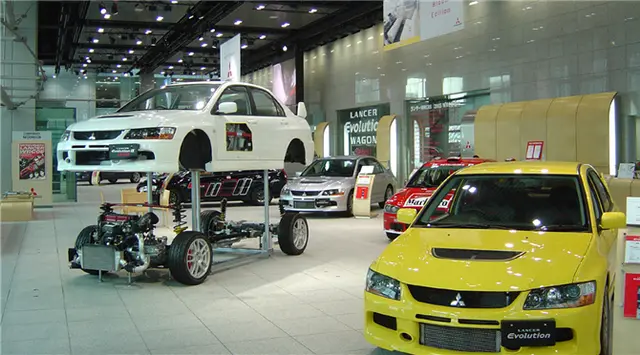Mitsubishi Motors Corp. following its submission of evidence showing it had falsified data on the fuel efficiency of some of its own and its client's vehicles, also said Tuesday methods used to collect data pertaining to fuel economy were not in line with Japanese standards.
The embattled automaker said that it had not complied with Japanese protocols on such data collection since 1981 and had opted, instead, to use favorable methodology for testing the efficiency of four minicars that would aggrandize the results by as much as 10 percent.
According to the Ministry of Land, Infrastructure, Transport and Tourism, the embellishing of data upped the fuel efficiency target for the four models to 29.2 km per liter from an initial 26. 4 km per liter.
The scandal-plagued manufacturer has purportedly been using testing standards that, while being fitting in the United States, are not in line with Japan's standards. The automaker's president, Tetsuro Aikawa, told a press conference that it had "lacked the ability to correct itself."
Aikawa's remarks come as it has been revealed that some of Mitsubishi Motors' data collected for running resistance was done so without, in fact, any such tests taking place.
The government has insisted the automaker fully account for itself by Wednesday on its erroneous dealings over the past 25 years.
On April 21, Japanese government officials raided a plant belonging to Mitsubishi Motors Corp. in Aichi Prefecture, central Japan, after the automaker initially admitted it had falsified fuel efficiency data for more than 600,000 cars sold in Japan.
The land ministry carried out its latest search, following an initial raid a day earlier. Mitsubishi Motors is likely to be punished by the ministry for allowing its employees to knowingly manipulate data related to fuel economy on more than 600,000 minivehicles.
Of a total of 625,000 cars sold under false fuel efficiency pretenses, 468,000 were supplied to Nissan Motor Co. The transport ministry told Mitsubishi Motors it must produce all the falsified documents before Thursday.
The models affected include the eK Wagon and eK Space city cars, as well as Nissan's Dayz and Dayz Roox.
Ministry officials said they were seeking to determine exactly how the employees falsified the data, with Chief Cabinet Secretary Yoshihide Suga saying the government "will respond strictly" to the case.
The top government spokesperson has said that Mitsubishi Motors had undermined the public's trust and raised doubts about the automaker's safety standards.
As well as being the automaker's second-largest plant in Japan, the location raided in Aichi Prefecture also doubles-up as a major research hub for the carmaker.
Mitsubishi Motors Corp., headquartered in Tokyo, has said that it will try to atone for its fraudulent practice by paying additional fuel costs incurred by customers who bought the affected models. Industry insiders said the case could cost the embattled firm some 50 billion yen (456 million U.S. dollars) in damages to customers and compensation payments to Nissan.
The government has said it is mulling administrative sanctions on the automaker, and some other manufacturers, including carmakers, who have had dealings with Mitsubishi Motors, in addition to Nissan, are also being asked by the transport ministry to check the actual fuel economy of their vehicles as compared to documented "claims" made by Mitsubishi Motors.
 简体中文
简体中文

